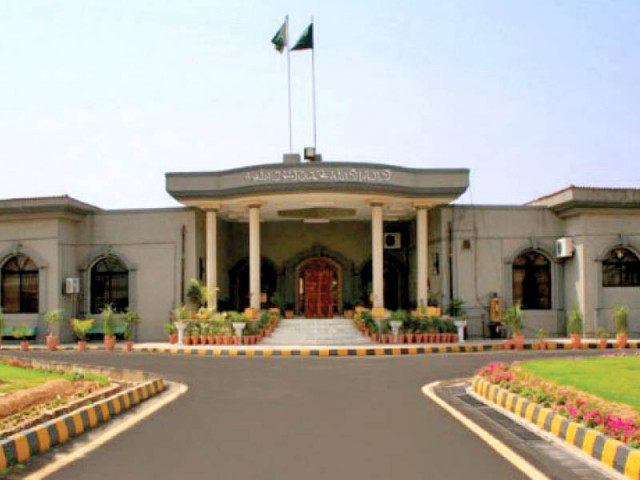Tawana Pakistan Project scam: TPP director general placed on ECL
He is accused of embezzling from the social safety net programme

IHC judge pays surprise visit to GBM of lawyers; urges patience. PHOTO: EXPRESS
While granting bail to Irfanullah Khan, who was also a former director general of Social Welfare in the Balochistan Government, a division bench comprising Justice Athar Minallah and Justice Miangul Hassan Aurangzeb ordered that Khan be placed on the list.
The bench granted bail to key suspect on medical grounds against the surety of Rs20 million in one of the five references filed against him. While seeking bail, Khan’s counsel submitted a fresh medical report before the court revealing that he was a heart patient and needed medical treatment.
NAB Special Prosecutor Adnan Tahir opposed the bail application, saying Khan was a key suspect in the scam and he not only misused his authority, but also embezzled public money. In the instant reference, the prosecutor said he was accused of embezzling Rs110 million.
Tahir said that total Rs3.6 billion were allocated for TPP project and nine suspects had allegedly embezzled millions of rupee at different stages. He added that five separate references were filed against the suspects, which have already led to five convictions for misappropriation.
NAB had initiated an inquiry against Khan and others regarding corruption and corrupt practices in the TPP on the direction of the Prime Minister’s Inspection Commission in 2009.
NAB said that the officials were accused of corruption and corrupt practices, illegal gratification, and misuse of authority in connivance with others that caused a huge loss to the national exchequer by not deducting compulsory income tax.
The purpose of the project was to address the nutritional needs of girls between the ages of five to 12 years studying in government girls primary schools of high poverty areas of the country but the accused persons provided unhygienic food items that were harmful for human health.
TPP was launched by the now devolved ministry of social welfare after the Executive Committee of the National Economic Council (Ecnec) approved it in September 2002.
Under the project, nutrient milk was to be provided to schools in the less-developed areas. During an audit of 23 schools in the selected districts, about 73 per cent of the schoolteachers revealed that the milk supplied to the schools was unhygienic
and stale.
Published in The Express Tribune, November 30th, 2016.


















COMMENTS
Comments are moderated and generally will be posted if they are on-topic and not abusive.
For more information, please see our Comments FAQ